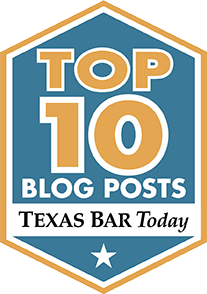
 Each university and college town across the nation would normally be reveling in excited anticipation of the upcoming fall semester. Everything from football games and crowded local bars to student events and moving in for the semester contribute to the college experience. The continued impact of COVID-19 has left these activities in limbo. As this massive public health pandemic continues, universities and the college towns that surround them are seeing commercial businesses and leases being affected. Not only that, but student housing is also anticipated to be a much different experience as the coronavirus continues to spread.
Each university and college town across the nation would normally be reveling in excited anticipation of the upcoming fall semester. Everything from football games and crowded local bars to student events and moving in for the semester contribute to the college experience. The continued impact of COVID-19 has left these activities in limbo. As this massive public health pandemic continues, universities and the college towns that surround them are seeing commercial businesses and leases being affected. Not only that, but student housing is also anticipated to be a much different experience as the coronavirus continues to spread.
Understanding how commercial businesses operate out of a college town, as well as how changes in the student housing market will be affected could shed some light on what’s to come in future years for the college experience and the towns that support it.
College Town Commercial Leases Affected by COVID-19
College towns are typically bustling with students during the fall and spring semesters. These towns are often in smaller subsets of larger cities like College Station, which is home to Texas A&M, or Waco, where Baylor University resides. Because of this, most businesses in these areas rely on student patrons to keep them afloat; however, with the continued spread of COVID-19, many of these areas have experienced or are anticipating a major blow to revenue due to the shift to online classes during the 2020 school year. The fate of football and other fall athletic programs remain largely unknown at most universities.
At Clemson University, for example, college seasons provide much of the appeal to commercial businesses in the area. Many local businesses are already struggling and may not survive through the end of the year without fall sports. These concerns are no different at the University of Massachusetts at Amherst, where the loss of students has meant a loss of money that would be poured into local economies. In fact, undergraduate students make up nearly three-quarters of Amherst’s total population; and, that population largely left the town when campus closed in March.
According to a recent NBC News article, as of July 10 of this year, 58% of colleges will offer in-person instruction, 9% are providing strictly online classes, and 27% have proposed a hybrid model for the fall. Experts believe most teaching will be remote, as classrooms will reduce occupancy to prevent the spread of COVID-19. The Amherst Business Improvement District anticipates at least 30% of area businesses will close within the next year. This anticipated influx of business closures is cause for concern over commercial leases and rent payments in college towns.
Changes in Student Housing Market
As with these anticipated changes to commercial leases and business operations in college towns across the country, the student housing market is no different. Property vacancies by bed in student housing markets aren’t expected to see a partial recovery in vacancy rate until at least the fall of 2021 due to weakened demand as universities opt for more online classes. Families are choosing to keep students at home during the upcoming fall and spring semesters, meaning residential leases are likely to fall as well. These rent decreases will directly affect landlords and property owners who rely on student housing rent payments in order to make ends meet.
Preparing for a Commercial Lease Dispute
The anticipated changes in college town businesses and student housing markets don’t just affect business owners, but landlords as well. If business owners are unable to make rent payments on time or at all, landlords are in turn unable to make money, often leading to a commercial lease dispute. In order to prepare for such a dispute, landlords and property owners should consider the following:
- Review existing lease terms to determine if any contractual provisions exist that excuse the non-payment of rent. While the tenant will not be excused for failing to make rent payments due to COVID-19, if the landlord is prohibited from evicting them for nonpayment, they should determine if late fees or other penalties exist under the lease. In addition, landlords should also check the timing of notice requirements to determine how long a tenant has to make a rent payment or cure a default.
- In the event a tenant is unable to pay rent, the landlord will need to decide whether to evict the tenant or to attempt to work out rent relief or rent adjustment to maintain the tenant. This may provide an opportunity to restructure the lease
- The Centers for Disease Control and Prevention (CDC) has various guidelines to keep commercial establishments safe for tenants and patrons alike. However, if a landlord becomes aware someone on its property is carrying the virus, is sick, or is quarantined, the landlord should promptly notify the other tenants by posting notices and sending out electronic notifications. In addition, the landlord should obtain reliable information from public health agencies about potential actions it should take if someone in the building is sick.
Houston Commercial Leasing Dispute Lawyers
COVID-19 has drastically changed how businesses and universities operate, and will likely continue to operate for years to come. As commercial business and student housing leases change as the pandemic continues, lease disputes are likely to follow. At Raizner Law, we understand just how frustrating these situations can be for business owners and landlords alike. If you are a landlord in a college town and tenants are not paying rent, contact us today to see how we can help you recoup your losses.


